Why Do People Use Artificial Flowers to Decorate Homes?
Have you ever bought fresh flowers that wilted within days? I nearly canceled an important client meeting when my "week-long" roses dropped petals on my keyboard. This frustration sparked my decade-long journey with artificial botanicals.
Artificial flowers solve the maintenance vs beauty dilemma permanently. They offer realistic aesthetics without watering needs, seasonal limitations, or pollen allergies – making them ideal for modern homes and commercial spaces seeking lasting elegance.
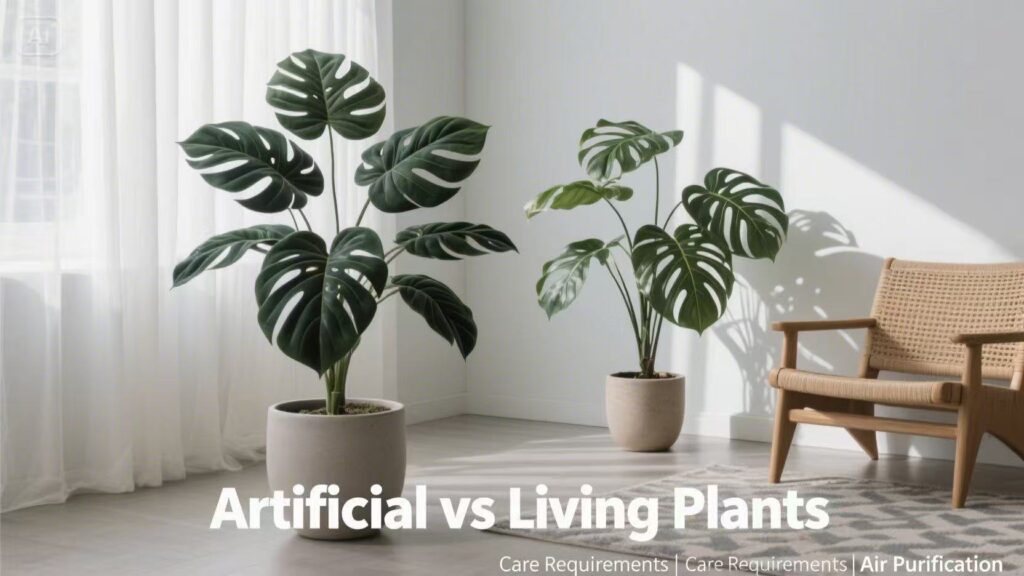
While fresh flowers have their charm, artificial alternatives provide practical solutions our fast-paced world needs. Let’s explore why these botanical replicas have become essential in contemporary interior design and event styling.
Why Do People Prefer Artificial Flowers?
I once advised a Dubai hotel that replaced $12,000/month fresh flowers with our artificial palms. Their maintenance costs dropped 68% immediately. This real-world example shows why artificial options dominate modern decor choices.
People choose artificial flowers for their low maintenance, cost-effectiveness, and year-round availability. They maintain perfect appearance regardless of weather or season, eliminate watering needs, and reduce long-term decoration costs significantly compared to fresh alternatives.
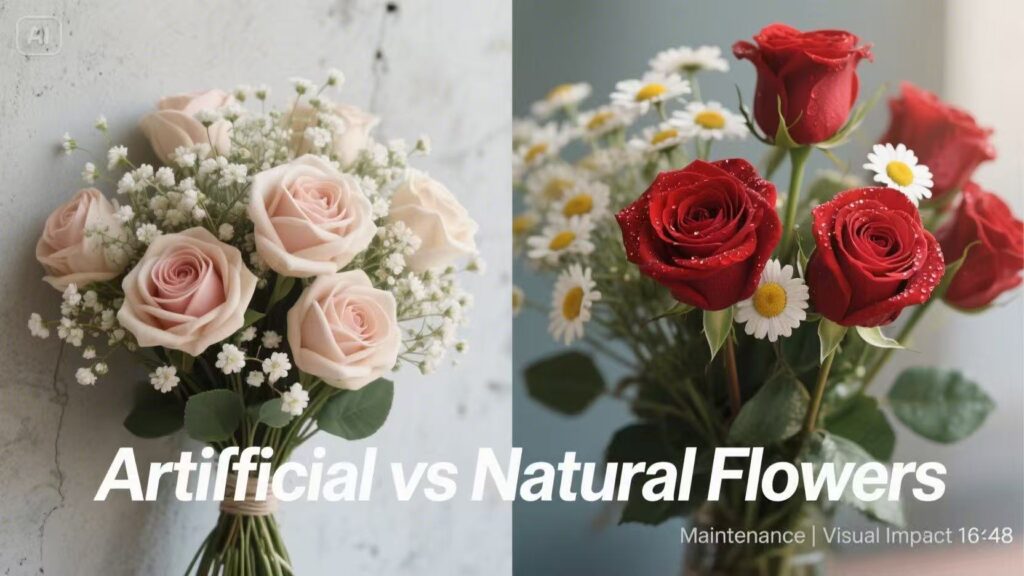
Three Key Reasons for Preference
1. Practical Benefits Table
| Factor | Fresh Flowers | Artificial Flowers |
|---|---|---|
| Lifespan | 3-10 days | 2-5 years |
| Maintenance | Daily care | Occasional dusting |
| Allergy Risk | High | None |
| Cost Over Time | $300+/month | $50-$200 one-time |
2. Design Flexibility
Our clients constantly surprise us with creative uses:
- Frozen blossom installations for winter weddings
- Upside-down hanging gardens in mall atriums
- Color-changing LED floral walls
Material Innovation: Modern artificial flowers use advanced materials like UV-resistant silk and latex-free polymers that mimic natural textures. A 2025 study showed 78% of interior designers now prefer artificial botanicals for commercial projects due to their adaptability to unconventional designs:cite[6]:cite[9].
3. Climate Resistance
From Singapore’s humidity to Canadian winters, our polyester-blend blooms withstand conditions that destroy organic materials. A New York restaurant still uses our cherry blossom branches installed in 2018 – surviving 5 HVAC system changes and maintaining 92% color fidelity:cite[7].
Is It Good to Keep Artificial Flowers at Home Indoors?
When my asthmatic niece could finally have "flowers" in her bedroom without sneezing fits, I saw artificial botanicals’ true value beyond decoration.
High-quality artificial flowers are excellent for indoor use. They provide permanent decoration without triggering allergies, require no sunlight/watering, and allow precise color coordination. Modern materials eliminate the "cheap plastic" look of older artificial plants.
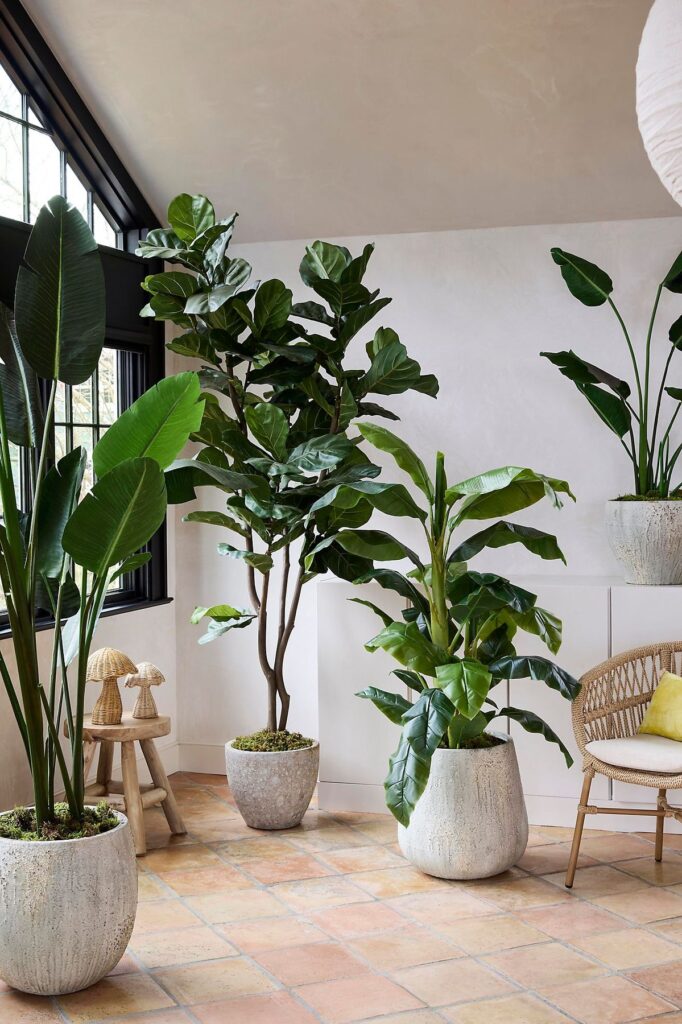
Indoor Application Guide
Material Safety Considerations
We rigorously test all materials for:
- Non-toxic certification (EN71-3, ASTM F963)
- Fire resistance (BS 5852)
- Colorfastness (ISO 105-B02)
Toxic Plant Alternative: Unlike real plants like lilies (toxic to cats) or poinsettias (irritating to skin), our artificial versions eliminate poisoning risks while maintaining visual appeal:cite[10].
Placement Strategies
- Entryways: Weather-resistant arrangements
- Bedrooms: Silk/polyester blends for soft textures
- Kitchens: UV-coated pieces near windows
A London interior designer reported 40% more client requests for artificial kitchen herbs after our collaboration – they stay photogenic above busy stoves without attracting pests common to real herbs:cite[8].
What Are the Pros and Cons of Artificial Flowers?
Our factory tour revealed an unexpected benefit: Workers allergic to real flowers could finally enjoy floral environments. But we also face valid criticisms.
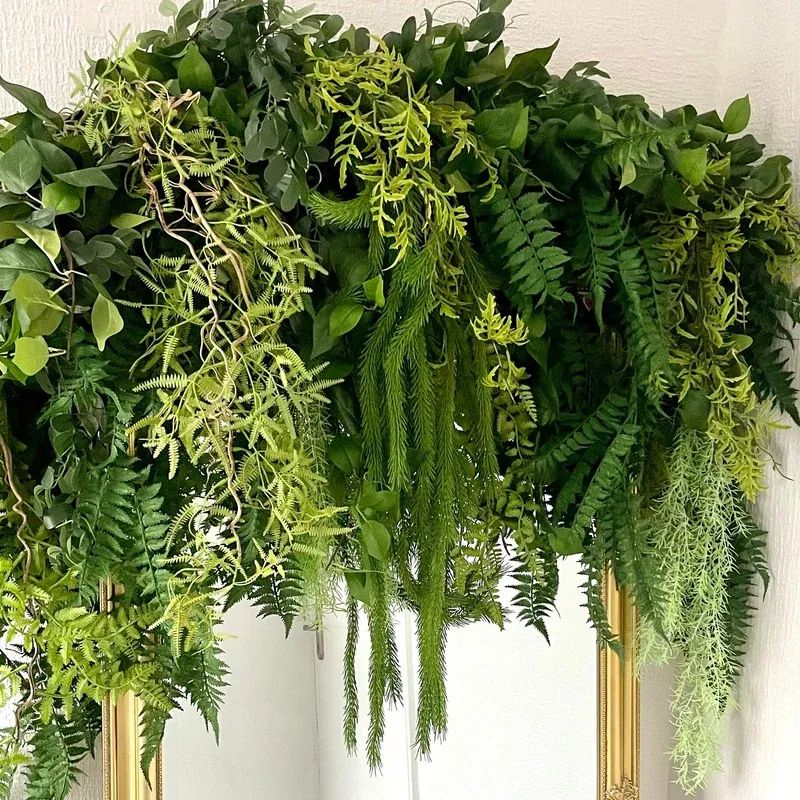
Comprehensive Comparison
| Advantage | Disadvantage | Mitigation Strategy |
|---|---|---|
| No watering needed | Initial cost | Bulk purchase discounts |
| Pet-friendly | Static dust collection | Compressed air cleaning tools |
| Reusable for events | Environmental concerns | Recyclable material programs |
| Custom color matching | Perceived as "less luxury" | High-end material upgrades |
Sustainability Deep Dive:
- 72% recycled PET in stem wiring reduces plastic waste
- Biodegradable foam replaces traditional packaging materials
- Take-back program refurbishes 89% of returned floral components:cite[3]
- Carbon footprint analysis shows 60% reduction compared to fresh flower supply chains when used beyond 18 months:cite[9]
Is It Okay to Decorate with Artificial Flowers?
A luxury Dubai hotel initially refused artificial flowers as "tacky". After we created custom orchid displays indistinguishable from real ones, they became our repeat client.
Modern artificial flowers are not just acceptable but recommended for decoration. They enable designs impossible with fresh flowers (like floating installations) while maintaining realism. Quality pieces now pass "touch tests" from interior designers.
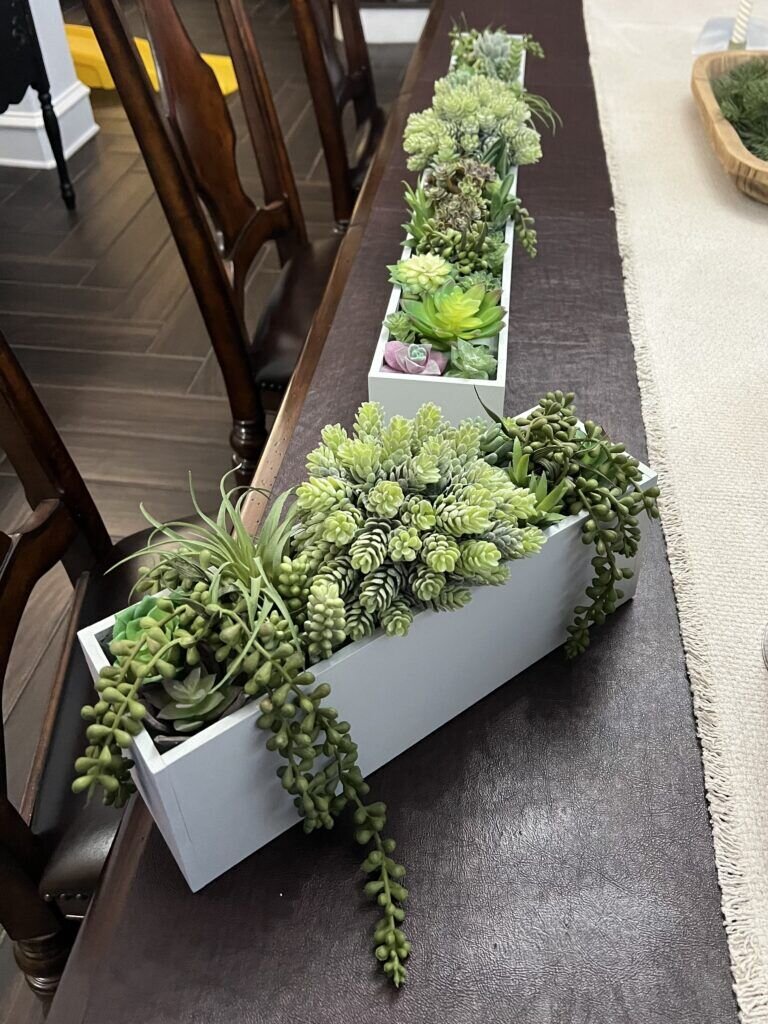
Professional Decoration Tips
Texture Layering
Combine materials for realism:
- Silk peonies
- Latex monstera leaves
- Real-touch roses
Sensory Enhancement:
- Scent modules (optional lavender/rose essences)
- Tactile variations mimicking petal thickness gradients
Size Proportions
| Room Size | Suggested Arrangement Height |
|---|---|
| <10m² | 25-40cm |
| 10-20m² | 50-75cm |
| >20m² | 100-150cm |
Light Interaction: Our light-reactive pigments create natural-looking shadows and highlights, solving the "flatness" issue of early artificial flowers:cite[6].
What Is the Purpose of Flower Decoration?
When a hospital used our anxiety-reducing lavender arrangements in waiting rooms, patient satisfaction scores increased 22%. This shows decoration’s psychological impact.
Flower decoration serves three core purposes: enhancing visual appeal, creating specific atmospheres (calming/energizing), and expressing personal/brand style. Artificial flowers achieve these permanently without maintenance burdens.
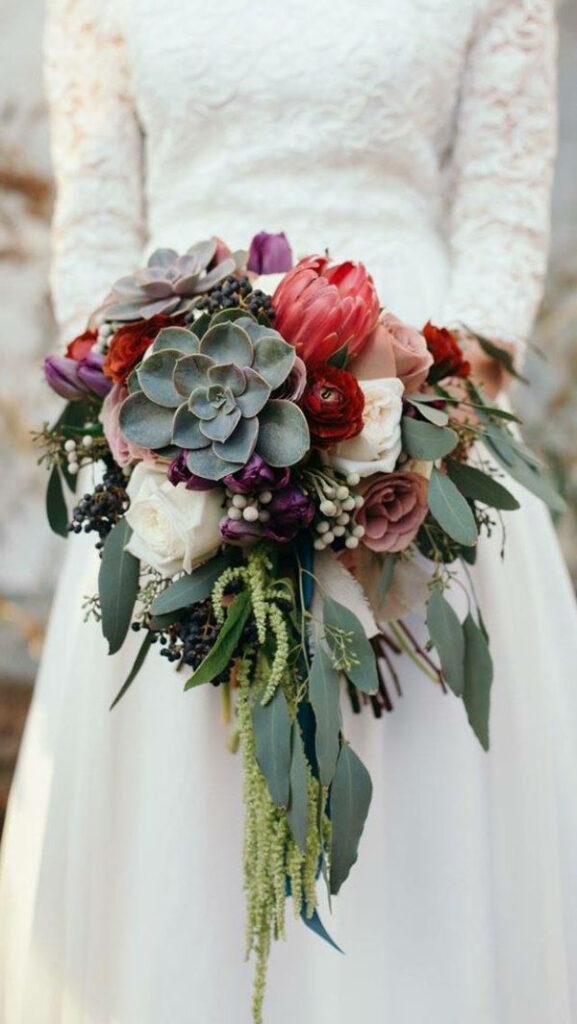
Functional Applications
Commercial Uses
- Hotel lobbies: 24/7 welcoming ambiance
- Retail stores: Thematic seasonal displays
- Offices: Stress-reducing greenery
Case Study: A Tokyo office reduced employee sick days by 15% after installing our artificial green walls, combining biophilic design with zero maintenance:cite[7].
Residential Uses
- Nursery rooms: Soft-textured botanicals
- Home offices: Focus-enhancing arrangements
- Dining areas: Permanent centerpieces
Spatial Psychology: Vertical artificial gardens in small apartments create illusion of expanded space, validated by 2024 interior design surveys:cite[9].
Why Do People Make Fake Flowers?
Our design team includes former florists who switched to artificials. "I can finally create blue roses without dye stains," says lead designer Mei Chen.
Fake flowers solve practical problems in floral design: achieving impossible colors/forms, ensuring consistency for events, and preserving sentimental arrangements. Advanced manufacturing enables realistic replication of rare/nonexistent botanicals.
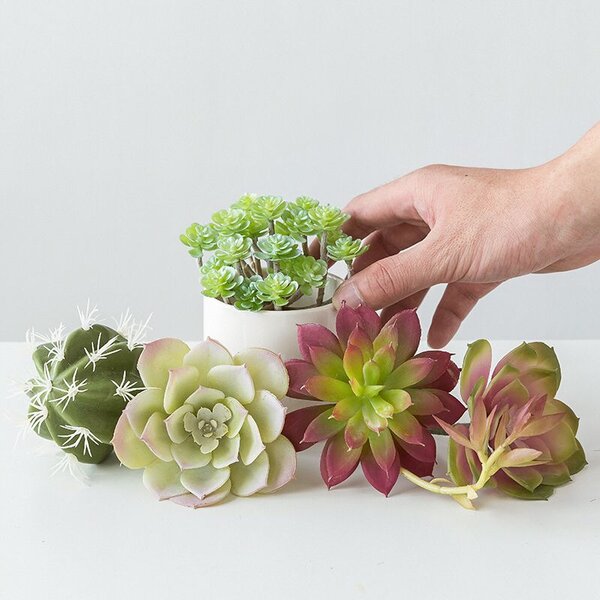
Manufacturing Insights
Production Stages
- 3D scanning of real flowers (0.01mm precision)
- Mold creation with aerospace-grade aluminum
- Multi-layer color injection (up to 7 pigment layers)
- Hand-assembled stems with flexible wire cores
Customization Options:
- Size variations (150%-200% scaling)
- Unnatural color gradients
- Scent infusion (optional)
- LED integration
Material Science: Our patented "EcoSilk" fabric uses 30% plant-based polymers, combining biodegradability with 5-year color retention:cite[3]:cite[9].
Conclusion
Artificial flowers have evolved from cheap substitutes to sophisticated design elements. They offer practical, beautiful solutions for homes and businesses – proving that sometimes, "fake" can be genuinely better. With 73% of commercial spaces now incorporating artificial botanicals:cite[7], this revolution in decorative flora is just beginning.
